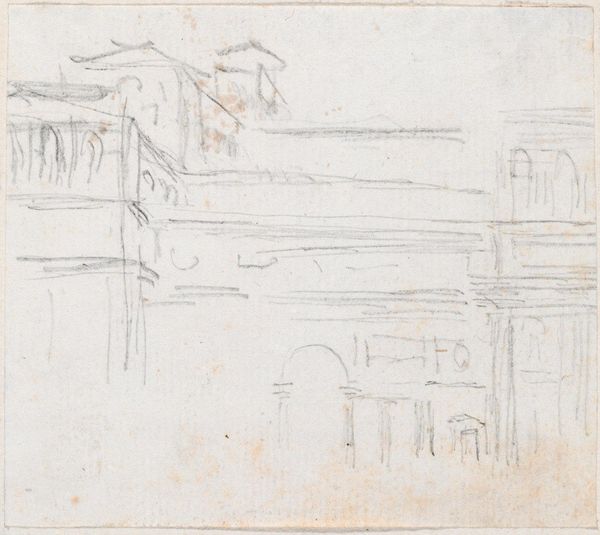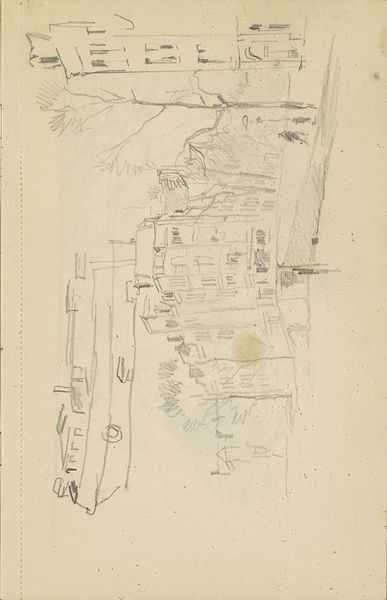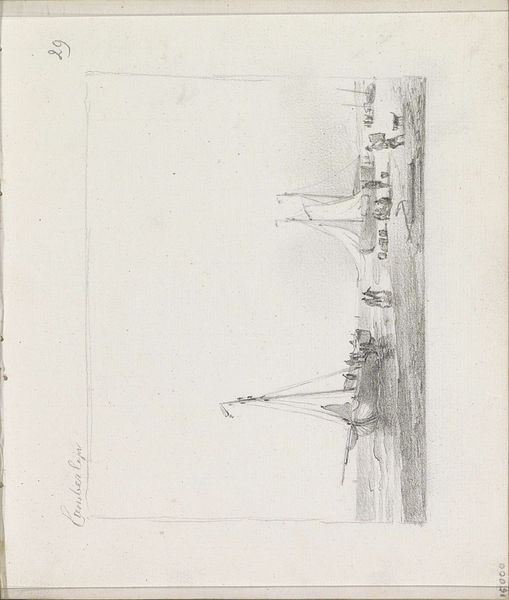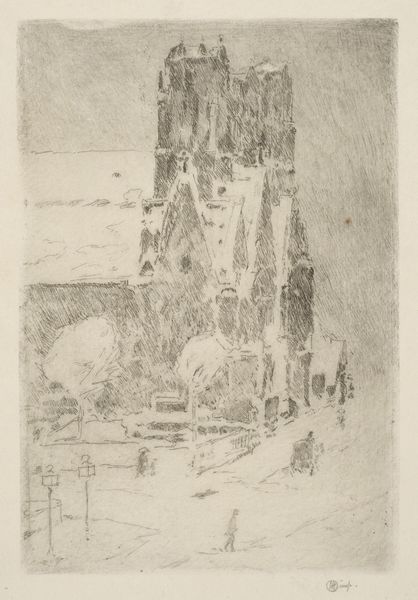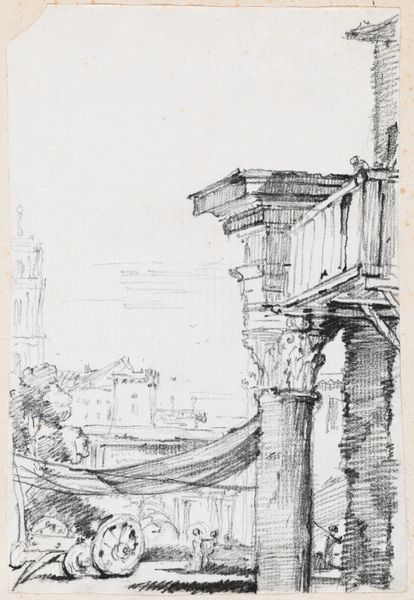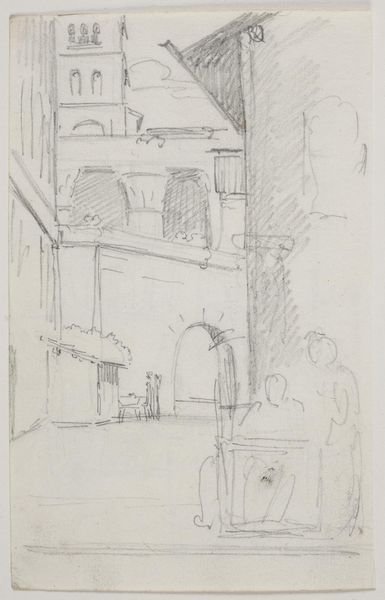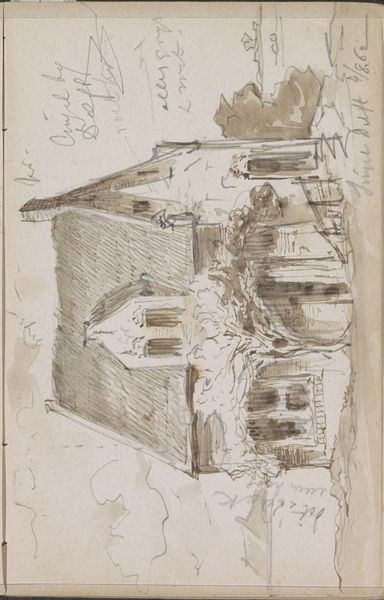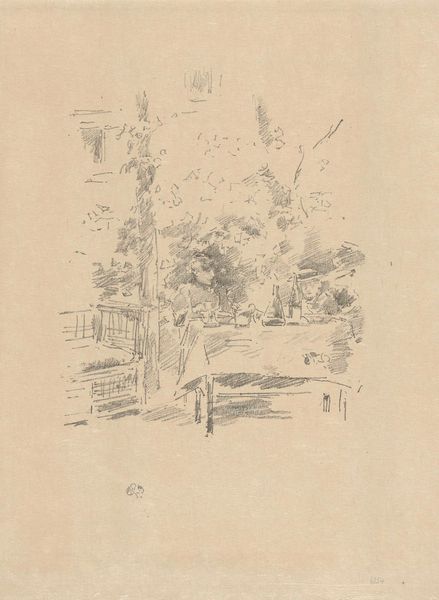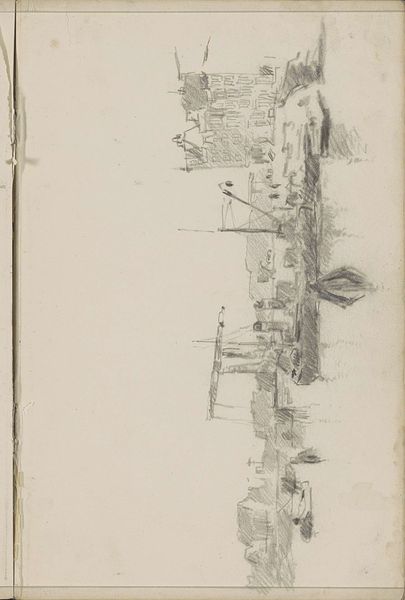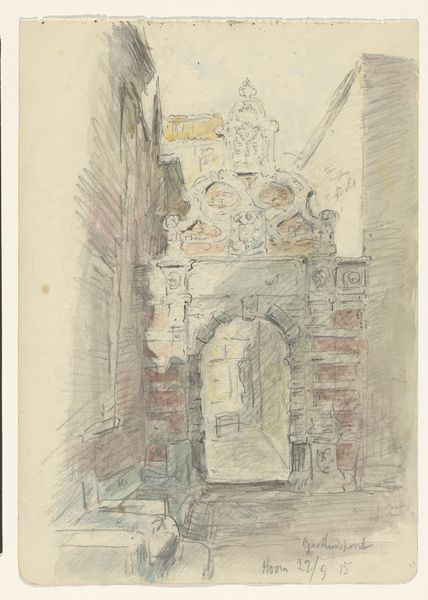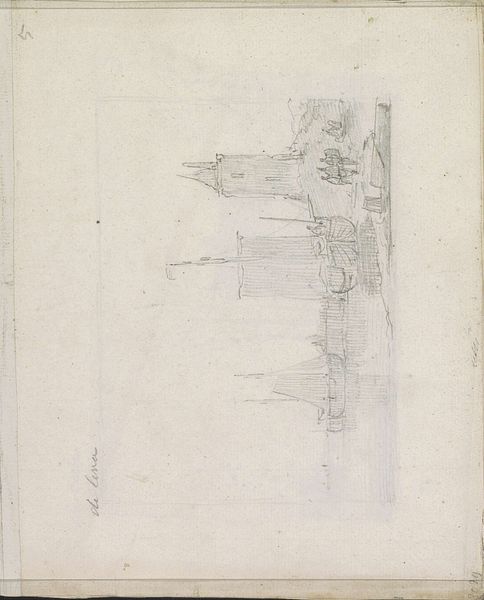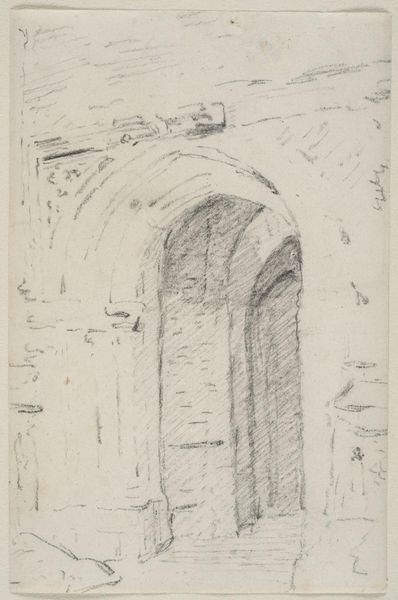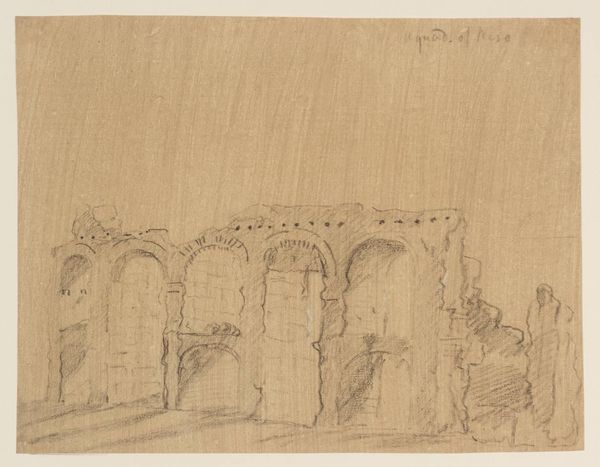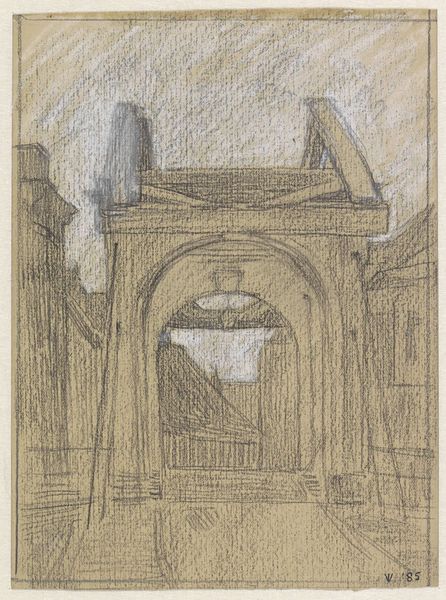
drawing, pencil
#
drawing
#
amateur sketch
#
aged paper
#
toned paper
#
light pencil work
#
quirky sketch
#
dutch-golden-age
#
pencil sketch
#
incomplete sketchy
#
landscape
#
personal sketchbook
#
pen-ink sketch
#
pencil
#
sketchbook drawing
Dimensions: height 288 mm, width 395 mm
Copyright: Rijks Museum: Open Domain
Editor: This is "Schets van een vervallen toren en poort," a drawing made with pencil by Anthonie Waterloo sometime between 1619 and 1690. It's housed here at the Rijksmuseum. The quick, almost careless lines give the scene a feeling of impermanence. What can you tell me about it? Curator: Well, looking at the material qualities, we can immediately see how the paper itself has aged, suggesting its journey through time and handling. Notice the deliberate use of pencil. This wasn't necessarily about creating a finished product for sale but possibly for Waterloo's own exploration. How do you think that impacts our reading of it? Editor: It feels more like a record of a place or perhaps a step in a longer creative process, rather than something intended to be the final word. Curator: Exactly! Consider the economics of art at that time. Landscape sketches like this could be studies for larger paintings, or they could have served as references for other artists in his workshop, contributing to a larger cycle of artistic production. It blurs the lines between high art and the work involved in producing it. Editor: That's fascinating. So it's not just about the ruined tower itself, but also about the labor and materials that went into depicting it and how that sketch might have functioned within Waterloo's practice. Curator: Precisely! Think of it as a commodity in progress. Even the act of sketching, a seemingly simple process, is embedded within social and economic structures. What new insights did this give you? Editor: Thinking about the material and the process really changes my view of the artwork from just a pretty picture to seeing it as a piece of working life. Curator: Agreed, and examining sketches helps break down the Romantic notion of the solitary genius. Waterloo, as revealed by this unassuming sketch, was very much a part of the everyday production of images in 17th century Holland.
Comments
No comments
Be the first to comment and join the conversation on the ultimate creative platform.
